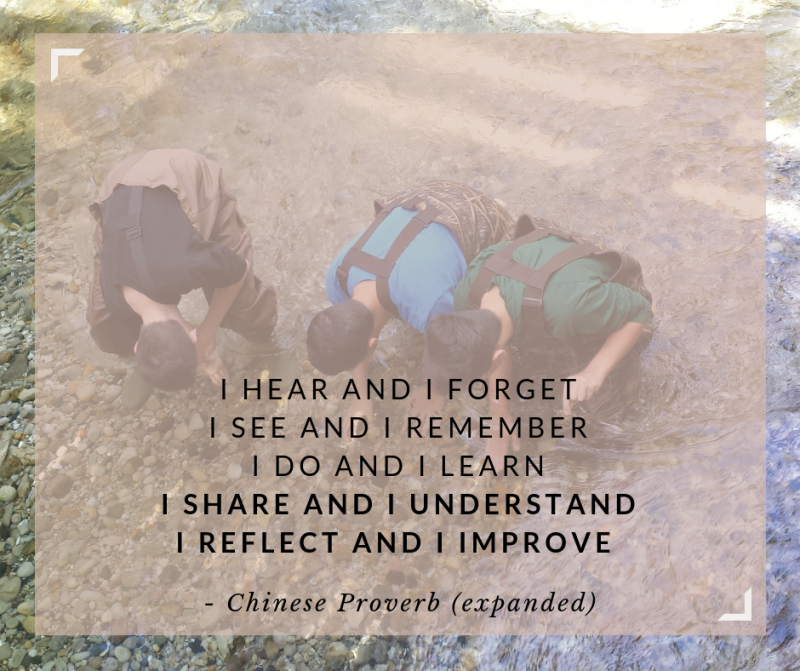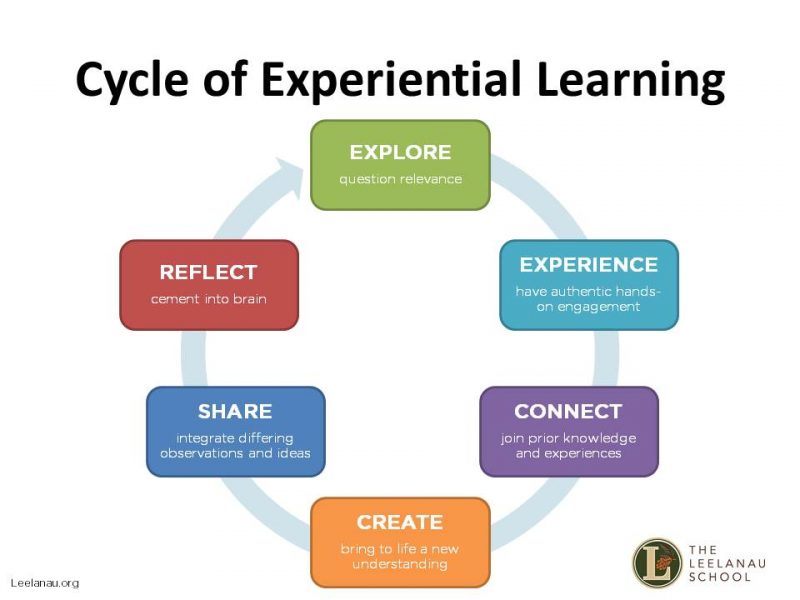
Is Experiential Learning the Same As Hands-On Learning?
Experiential learning as an educational term can get a bit sticky.
To some it sounds like educational jargon. To others a made-up or misspelled word. In a landscape with so many terms, processes, programs, and theories it can come across as self-important or confusing when used without a clear understanding of application by the average person.
There is so much more –
Don’t other terms such as hands-on learning or immersive learning mean the same thing? Those terms having found a more comfortable space in everyday language.

The thing is, experiential learning is a concept worth getting to know. It promises more than those others in terms of scope and outcome. It describes the way students actually retain and recall information. It is the way learning is brought to life and it brings deeper and more lasting meaning.
Going beyond hands-on learning, experiential learning is the process of learning through the reflection of doing.
It is a cycle of learning with no beginning and no end. The process can start at any point.
Experiential learning is learning through:
- Exploring and experiencing in order to find relevance and have authentic engagement
- Connecting and creating to relate to prior knowledge and conceive new understandings
- Sharing and reflecting to integrate differing observations and commit it all to the brain
In this full circle approach, learning is better retained in concept and process. Critical thinking skills are sharpened and there is more joy in discovery. And anything that brings joy into the process of learning is worth getting to know!

The original Experiential Learning Theory was conceived by psychologist David Kolb in 1984 and is used in all levels of education, as well as in business applications.
What we like:
It gets students moving
It draws from past experience
It initiates more meaningful discussion
It allows for deeper questioning
It focuses on how to learn, rather than what to learn
What is the Most Important Thing in College? – University Sensei
[…] you have learned towards certain tasks. On the other hand, experiential learning has more of a cycle nature to it. Thus, practical learning can be viewed as a learning step while experiential learning […]